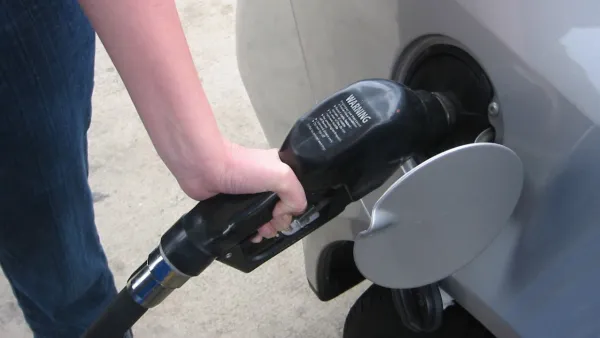Thanks to two recent New York State court rulings, disposable food and beverage containers will no longer be made from polystyrene in the nation's largest city. The ban was originally proposed by Mayor Michael Bloomberg in February 2013.

Mayor Michael Bloomberg proposed a ban on foam food containers in February 2013 and the City Council approved it in December, but it was his successor, Mayor Bill de Blasio, who put the ban into effect in July 2015. Acting on a lawsuit led by Michigan-based Dart Container Corporation, New York State Supreme Court Justice Margaret A. Chan overturned the ban less than three months later, denying the city’s claim that recycling used polystyrene containers "was neither environmentally effective nor economically feasible.”
The New York City Sanitation Department issued a new report [pdf] in May 2017 to prove their original findings, that it wasn't feasible to recycle used polystyrene, and the plastics and food service coalition sued again, but this time Justice Chan upheld the ban in June 2018. The Restaurant Action Alliance appealed to a New York State appeals court which upheld the ban in October, writes Eric A. Goldstein, New York City environment director for the Natural Resources Defense Council, "delivering a victory to all who care about reducing street litter and waterway pollution in the nation’s largest city."
Technically called expanded polystyrene, or EPS, it is often confused with Styrofoam™, a Dow trade name, which is actually blue in color.
In addition to foam clamshells and take-out containers, the ban also applies to foam cups, plates, bowls and foam packing peanuts, writes Michael Gold for The New York Times, who also reports on other new laws that took effect New Year's Day in New York City. Businesses who don't adhere to the new law will be warned, with fines to be applied in July.
Expanded polystyrene is recyclable, but it's not economical to do so. Green Citizen in the Bay Area charges consumers $5 per 30 gallon bag, and it must be clean. The same properties that make EPS an effective insulator is what makes it so difficult to recycle. It's low density makes it difficult to transport. In the environment, it doesn't degrade.
"[A]lthough polystyrene only comprises about 2 percent of the total municipal solid waste stream by weight, it comprises roughly 30% of the total volume in the landfill due to its excessive use in packaging," according to American Disposal Services.
According to Californians Against Waste, 119 local governments have enacted expanded polystyrene food packaging bans as of last year.
In February 2018, Dunkin' Donuts announced that it will end using polystyrene foam cups by 2020.
FULL STORY: A Long-Awaited Ban on Foam, and Other New Laws in New York in 2019

Analysis: Cybertruck Fatality Rate Far Exceeds That of Ford Pinto
The Tesla Cybertruck was recalled seven times last year.

National Parks Layoffs Will Cause Communities to Lose Billions
Thousands of essential park workers were laid off this week, just before the busy spring break season.

Retro-silient?: America’s First “Eco-burb,” The Woodlands Turns 50
A master-planned community north of Houston offers lessons on green infrastructure and resilient design, but falls short of its founder’s lofty affordability and walkability goals.

Test News Post 1
This is a summary

Analysis: Cybertruck Fatality Rate Far Exceeds That of Ford Pinto
The Tesla Cybertruck was recalled seven times last year.

Test News Headline 46
Test for the image on the front page.
Urban Design for Planners 1: Software Tools
This six-course series explores essential urban design concepts using open source software and equips planners with the tools they need to participate fully in the urban design process.
Planning for Universal Design
Learn the tools for implementing Universal Design in planning regulations.
EMC Planning Group, Inc.
Planetizen
Planetizen
Mpact (formerly Rail~Volution)
Great Falls Development Authority, Inc.
HUDs Office of Policy Development and Research
NYU Wagner Graduate School of Public Service



























